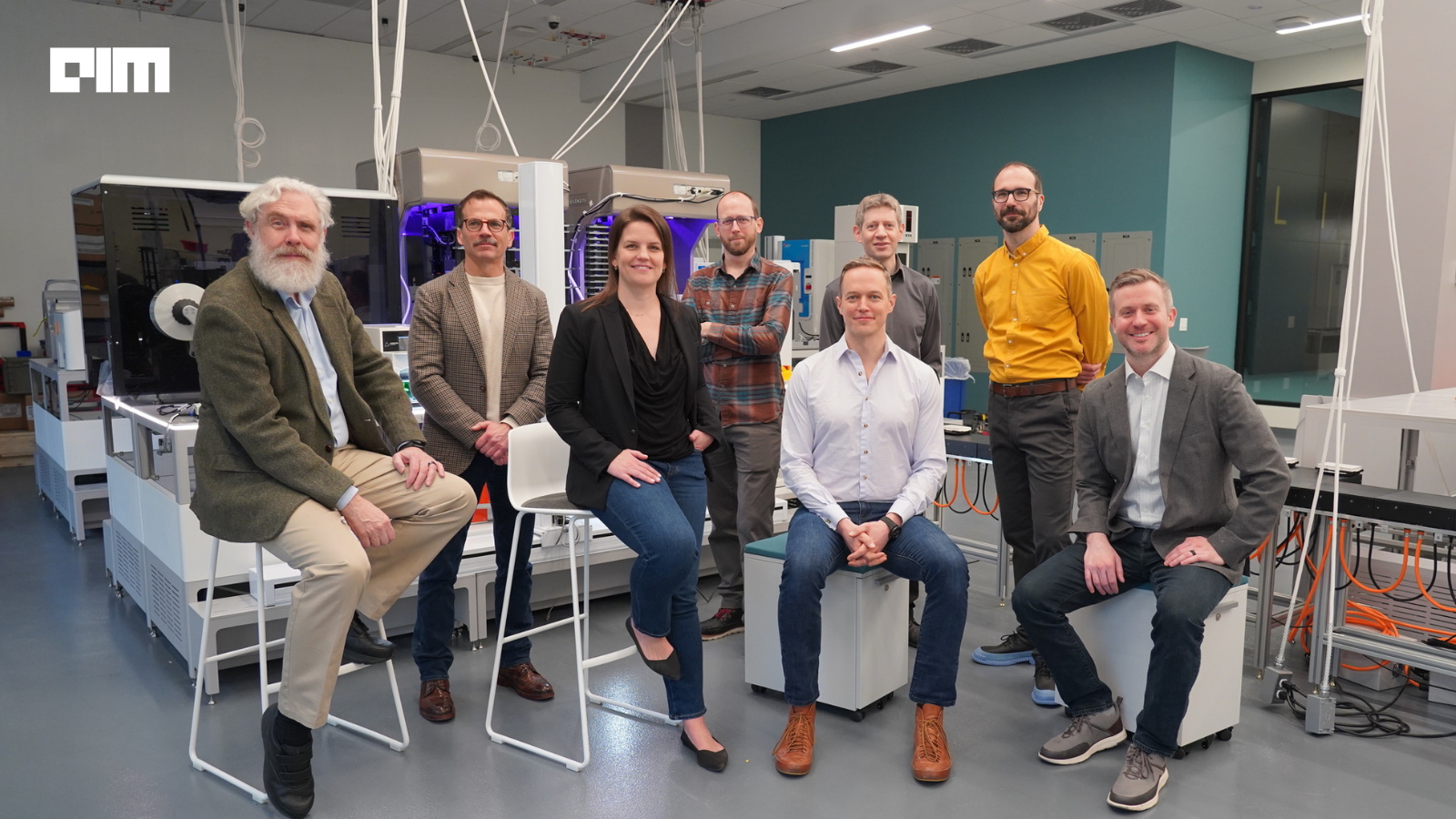Biotech startup Lila Sciences has raised $235 million in their Series A funding round and has secured unicorn status. Based in Cambridge, Massachusetts, the startup will now have a valuation of $1.2 billion since launching in 2023. Led by Braidwell LP and Collective Global, with participation from ARK Venture Fund, General Catalyst, and other early backers such as the Abu Dhabi Investment Authority, the funds will be used to expand their research facilities, referred to as ‘AI science factories’.
Initially backed by Flagship Pioneering, the startup aims to integrate advanced AI with fully autonomous robotic laboratories, called “scientific superintelligence”. This approach is designed to automate and accelerate the entire research process, helping scientists come up with ideas, run experiments, learn from the results, and repeat the cycle much faster than before.
“The next frontier in scientific discovery will come from enabling AI to design and run experiments at an unprecedented scale,” said Molly Gibson, President of Future Science at Lila.
At the core of its product is what Lila Sciences refers to as ‘AI science factories’, a highly automated, AI-guided lab that accelerates the scientific workflow. These labs are designed to do a lot of the heavy lifting. They generate ideas, design and run experiments, analyze the results, and then use what they learn to improve the next round of testing. This cycle happens much faster and on a much bigger scale than traditional science.
The company’s approach tackles some of the most time-consuming and costly parts of R&D. Hypothesis generation, experimental design, data collection, and iteration. By automating these processes and enabling real-time feedback between the AI models and physical experiments, Lila aims to significantly compress discovery cycles. This capability opens the door to exploring a wider range of experiments, making smarter adjustments along the way, and achieving breakthroughs faster than ever before.
Leading this effort is CEO Geoffrey von Maltzahn, who brings years of biotech experience from Flagship Pioneering, where Lila began, along with Harvard geneticist George Church as Chief Scientist. Their combined expertise lends scientific credibility to Lila’s data-driven, automated approach.
Analysts point out that while Lila has not yet brought commercial products to market, investors view the company as an “IP factory”, banking on its ability to rapidly generate novel intellectual properties powered by its scientific superintelligence platform.
Key Challenges Faced
Traditional drug discovery and materials research can be extremely slow and expensive, taking years and costing billions to bring promising compounds from discovery to real-world use. The sharp reduction in costs for genome sequencing and lab automation tech, combined with advances in AI, have created fresh opportunities for startups like Lila to challenge this problem.
Lila’s closed-loop, autonomous lab model capitalises on these cost declines, allowing rapid execution of high-throughput experiments at a fraction of previous costs. By combining computer predictions with real lab results in tightly connected cycles, they can learn more quickly and at scale.
However, hurdles still remain. Any drug candidate developed by AI must go through rigorous testing to meet FDA safety and efficacy standards. This includes maintaining thorough documentation and reproducibility throughout preclinical and clinical phases, which the company acknowledges and prioritises. Lila stresses the importance of human oversight in its AI-driven processes, aiming to mitigate risks of biases or over-reliance on automation.
A Wider Implication
Lila’s funding round is part of a larger trend in the biotech industry. In 2024 alone, AI-first biotech startups attracted a staggering $10.5 billion across more than 500 deals. Investors are backing companies based on platform potential, rather than short-term product revenues or proven therapeutics.
Companies such as Insitro and Recursion Pharmaceuticals share the stage with Lila, each exploring ways to harness AI for life sciences breakthroughs. Lila’s key differentiator remains its fully integrated, autonomous pipeline, which is designed for end-to-end closed-loop learning rather than isolated AI-assisted tasks.
Lila’s ambitions go even beyond healthcare. Their platform has potential applications in sustainable materials discovery, including projects that could address challenges like climate change through new carbon-capturing substances.










